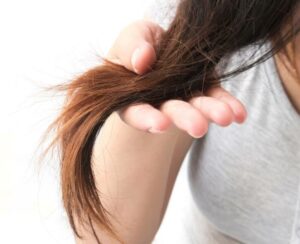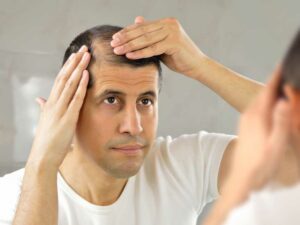 Men and women can suffer from hair loss for a variety of reasons. Genetics is often to blame for hair loss, and in many cases, it is the root cause. However, there is a large percentage of the population that experiences hair loss as a side effect of another condition or medication. Everything from poor nutrition to chronic stress to a hormonal imbalance can lead to hair loss.
Men and women can suffer from hair loss for a variety of reasons. Genetics is often to blame for hair loss, and in many cases, it is the root cause. However, there is a large percentage of the population that experiences hair loss as a side effect of another condition or medication. Everything from poor nutrition to chronic stress to a hormonal imbalance can lead to hair loss.
The key to finding a solution to thinning hair or baldness is determining the root of the problem and seeking treatment accordingly.
Thyroid disorders
Your hormones regulate nearly every function in the body. Your thyroid produces several of these hormones that regulate your metabolism and energy levels. When your thyroid hormones –TSH, T3, T4, rT3 – are out of balance, it can also cause hair loss. Getting these hormones back in balance can correct the problem, stopping hair loss and allowing your hair to grow back.
Post-partum
The constant fluctuations that occur following pregnancy and childbirth can lead to thinning hair or loss in patches. This is normal and can last up to three months after the birth of your child. Your body will recover from the loss and your hair will grow back.
Medication
Several types of medications can cause your hair to fall out. Blood thinners, birth control, SSRI, NSAIDs and beta-blockers are just a few that many people may not be aware of. Chemotherapy is also classically associated with hair loss. When you stop taking these medications or are no longer undergoing treatment, your hair will grow back.
Physical trauma
The body reacts in various ways to physical trauma. Anything from surgery to a major accident to a grave illness can cause shock to the hair follicles and cause up to 75 percent of your hair to fall out. The severity of the trauma and the treatment plan can impact when and if the hair will grow back.
Emotional stress
Emotional disturbances such as a divorce, serious financial woes or death of a loved one can disrupt hair growth. However, once the gravity of these emotions has lifted and these stressors have been controlled, the body often returns to it normal state and your hair will grow back.
Nutrient deficiencies
When your body is missing essential nutrients, it will do its best to reserve energy for all that is vital. Your hair does not make the top of this “vital” list. Crash diets, severely restrictive fad diets and failure to eat a variety of foods can lead to nutrient deficiencies, which can cause hair loss or poor hair growth. Make sure your diet is balanced to care for your precious locks.
Over-styling
Believe it or not, all that work you do to make your tresses look fabulous can bring some serious damage to your hair and the number of strands that remain on your head. Harsh chemicals, like strong dyes; overuse of heated styling tools, such as blow dryers, curling irons, curlers and straightening irons; or even a too tight ponytail can cause hair loss. Handle your hair with care to keep it healthy.
Infections
Skin fungal infections, bacterial infections and other internal infections can cause balding or thinning of the hair. You must treat the source of the infection to restore hair growth and
Autoimmune diseases
Diabetes and lupus are just two autoimmune diseases that have been linked to hair loss. In many cases the hair loss caused by these conditions may not be reversible; however medications or hair restoration surgeries may help compensate for the loss.
Genetics
Alopecia is the medical term for hair loss. There are two main types: alopecia areata and androgenic alopecia. Alopecia may cause hair loss exclusively on the scalp or all over the body. It may result in patches of hair loss, balding or thinning hair, which may be permanent or temporary. There are numerous causes, particularly genetics or autoimmune disorders as mentioned above. Treatments may be available to aid in hair growth, but a “cure” for patterned baldness has not yet been discovered.





